- ALL SERVICES
- • Salesforce Consulting Services
- • Managed Services
- • Simplification of Interfaces
- • Data Migration and Processing
- • Architectural Solutions and Scoping
- • Code Review, QA and Support
- • Applications Development
- • Pre-sales and Solutions Consulting
- • Technical Audit and Support
- • Custom Applications Development
- • AI Apps
blog
Challenges of Integrating Legacy Systems with Salesforce
• Date: May 2018 •
Subscribe for more useful content
We promise we'll not spam your mailbox!
However complex Salesforce may be, it simply can't address all the needs of a company, especially taking into account the variety of industry domains the CRM serves. Sometimes even looking for a solution on AppExchange won't do, and you'll need to search for a third-party app and integrate it with the CRM.

Another integration scenario is when a company has already invested money and effort in adopting software for some of its processes and doesn't want to spend them again on finding a solution, subscribing to it and having employees learning to use the new application. Here, a more efficient solution would be integrating the legacy system in Salesforce.
So at one point or another most companies using Salesforce face the need of third-party integration. There are lots of things to consider when setting out on this task. We at Twistellar would like to share with you a few things that every company considering Salesforce integration with legacy systems should know.
So at one point or another most companies using Salesforce face the need of third-party integration. There are lots of things to consider when setting out on this task. We at Twistellar would like to share with you a few things that every company considering Salesforce integration with legacy systems should know.

Integration of a Legacy System with Salesforce: Key Challenges
API specifics
One of the questions you should ask yourself before performing integration is 'what are the specifics of the legacy app's API?' You need to consider the type of the API, authentication method used, and data interaction format. A very important consideration is whether the API of the legacy application is going to be changed.
Different technology stacks
Software systems may be built using a different combination of technologies than Salesforce. In this case integration might require customizing the legacy application's infrastructure, which is time-consuming and costly. In many cases, searching for an alternative proves more cost-efficient.
Security concerns
For some companies security is crucial. Though some naysayers were doubtful about whether the cloud is a safe location to store sensitive customer data, at this point of time it is clear that such considerations are ungrounded. Moreover, an in-house server might be much more risky to store critical data on, or otherwise too expensive to secure and maintain.
On the other hand, when integrating a legacy system with the CRM, you might find out that the solution's API security is not compliant with your company's privacy policies. Customizing the application before integrating it with Salesforce can sometimes be too costly, which again will make you think of an alternative.
On the other hand, when integrating a legacy system with the CRM, you might find out that the solution's API security is not compliant with your company's privacy policies. Customizing the application before integrating it with Salesforce can sometimes be too costly, which again will make you think of an alternative.
Complex integration projects
Some businesses need to integrate several legacy applications or the entire infrastructure with Salesforce. Here, it is important for each app that has to be integrated, the integration scenario is different and require its own unique approach.
Low user adoption
This is not exactly the challenge companies face during the integration process but rather right afterwards. Getting used to new things, however great they are, may be hard, and some companies might find their users still transferring data from the CRM to the legacy system manually. So to make sure your team takes full advantage of the integration, provide user documentation and training.
How to Avoid Salesforce and Legacy App Integration Mistakes
Weigh your options.
In many situations there are great solutions available on AppExchange that can be adopted easily and don't require a complicated integration process. Also, there might be third-party solutions that will be far easier to integrate with the CRM than your legacy software system. To minimize the risks associated with starting a costly integration project, you need to come up with all options, calculate the costs of each, and think about timelines in each case.
In many situations there are great solutions available on AppExchange that can be adopted easily and don't require a complicated integration process. Also, there might be third-party solutions that will be far easier to integrate with the CRM than your legacy software system. To minimize the risks associated with starting a costly integration project, you need to come up with all options, calculate the costs of each, and think about timelines in each case.
Get your team involved.
After all, it's your team who'll have to deal with the newly integrated software. Ask for opinions and suggestions, and they could give you hints about what solution is the best.
After all, it's your team who'll have to deal with the newly integrated software. Ask for opinions and suggestions, and they could give you hints about what solution is the best.
Plan in detail.
You should have a clear goal behind the integration and also an understanding of what business processes it will facilitate. This is too demanding an undertaking to do it just because "others do it". Then think about whether data flow between the CRM and the app should be one-way or two-way and whether it will be one-time migration or ongoing synchronization. Select the exact types of data that should be extracted from one system and transferred to another. Remember to include data backup in the strategy.
You should have a clear goal behind the integration and also an understanding of what business processes it will facilitate. This is too demanding an undertaking to do it just because "others do it". Then think about whether data flow between the CRM and the app should be one-way or two-way and whether it will be one-time migration or ongoing synchronization. Select the exact types of data that should be extracted from one system and transferred to another. Remember to include data backup in the strategy.
Consult with an experienced Salesforce integration specialist.
Even if you have a qualified admin on board who has great coding skills, most surely he or she has little to no experience integrating legacy systems with Salesforce. A lot goes into such project, and doing it right from the very beginning will save you time and money. The very least you should do is consulting with a Salesforce developer who has expertise in third-party integration. Otherwise, consider hiring an expert for the job.
Even if you have a qualified admin on board who has great coding skills, most surely he or she has little to no experience integrating legacy systems with Salesforce. A lot goes into such project, and doing it right from the very beginning will save you time and money. The very least you should do is consulting with a Salesforce developer who has expertise in third-party integration. Otherwise, consider hiring an expert for the job.
Please reach out for free advice, if you have any questions.
If you're considering integrating a legacy system with Salesforce and need expert advice, contact us at Twistellar. As certified Salesforce partners, our specialists will provide you with the following services:
- CRM consulting and project scoping;
- legacy system integration;
- quality assurance.
- CRM consulting and project scoping;
- legacy system integration;
- quality assurance.
In case it turns out that building a custom application is a more efficient approach than integrating your legacy app, Twistellar will gladly give you a hand here too.
Our Best Articles and Salesforce Overviews

